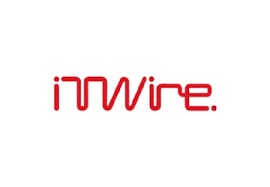
Press Coverage
Media Inquiries Contact:
Jeff Young, Vice President, Corporate Communications
PR@progress.com
Why DesignOps Is Becoming Critical in the Enterprise
One of the major problems with software development is that there is a tendency for coders and implementers to forget about design and assume that it will be done afterwards. Like any project in any field, it is generally better to incorporate design considerations into the initial planning stages to achieve the best results.
Finding the Right DXP Platform for Your Organisation Doesn’t Have to Include a Trade-Off
Digital transformation is offering organizations of every size the promise of a new way of doing business, delivering efficiency, cost-savings and the opportunity to enhance customer relations.
Progress updates Telerik Test Studio
Software development and deployment tool specialist Progress has announced a new verison of Progress Telerik Test Studio, its enterprise UI test automation platform.
Progress Telerik Test Studio R2 2021 is said to decreases app deployment time through new features and enhancements for easily identifying and fixing test failures.
3 Tips for Intrusion Prevention With Managed File Transfer
Security is table stakes for any managed file transfer (MFT) solution, and it’s important for organizations to understand the different levels of security. Mark Towler, senior product marketing manager, Progress, delves into the different types of secure MFT solutions and provides the top tips for intrusion prevention.
Tweaking the digital platform experience for personalization in SEA
For businesses around the world, building a great digital platform is essential. However, compared to other regions, the consumer culture in ASEAN is very much different.
Progress introduces new digital marketing capabilities
Leading provider of products to develop, deploy and manage business apps, Progress, has released a SaaS analytics, personalization and optimization system, Progress Sitefinity Insight with new digital marketing capabilities designed to help marketers adapt and pivot in the ‘new norm’.
Understanding AIOps: History, Uses, and Future
To understand AIOps, it helps to consider one very weird thought: the technological systems that we humans have built have become too complex to be managed by mere humans.
Specifically, the IT operations that run businesses have galloped forward in complexity, leaving their human masters in semi-bewilderment.
Progress launches MOVEit Cloud in the UK and Australia
The Progress MOVEit Cloud, a cloud-based, managed file transfer (MFT) software, is now available via Microsoft Azure in Australia and the UK to assist businesses meet complex compliance and data protection regulation needs in those regions, Progress announces.
Progress announced the expansion of its Women in STEM scholarship series to India with the establishment of the “Progress Software Akanksha Scholarship for Women in STEM.”
Eight apps win The Worthy Web hackathon
Progress announces the winners of its global hackathon The Worthy Web, a six-week virtual competition which attracted 1,200 participants from 83 countries and garnered 52 submitted projects.
The Worthy Web Hackathon - 1,200 developers, 83 countries, and $40,000 in prizes
Winners of The Worthy Web Hackathon announced. 1,200 developers, 83 countries, and $40,000 in prizes.
Technology company Progress has announced the winners of its global hackathon, The Worthy Web. The six-week virtual competition was attended by nearly 1,200 participants from 83 countries, with 52 projects submitted.
Progress announces winners of hackathon
A six-week virtual global hackathon called The Worthy Web announced its winners on Friday. The hackathon conducted by Nasdaq-listed Progress had attracted 1,200 participants from 83 countries who submitted 52 projects. Held across April 7 to May 24, the challenge gave developers a chance to build apps for humanity using Progress’ Telerik and Kendo UI developer tools and projects were accepted in nine categories and competed for total prize money of $40,000.
From DevOps to DevSecOps: challenges and benefits of integrating security into DevOps
IDC predicts that public cloud services spending in Asia Pacific will reach US$48.5 billion in 2021. This is not a surprise as cloud has proven to be a key driver of innovation in our increasingly digitized economy, and a core contributor to resilience in the context of the pandemic.
How innovation attracts and retains employees in the IT industry
Competition for talent in the IT sector is hot and companies are constantly challenged to think of new ways to attract, retain and inspire their most valuable team members. Money remains a key factor but a growing number of businesses are realizing the importance of other factors, including access to innovative solutions and inspiration that motivate and bring additional value to the employees and employers alike.
Progress releases Sitefinity Insight for post-COVID ‘reality’
Progress - which describes itself as a “high impact” applications comapny - says Sitefinity Insight will help marketers pivot to the post-COVID reality and deliver “differentiated customer experiences”.
“The new capabilities will arm marketers for the post-COVID reality and help them reduce data complexity, reliance on IT teams and adjust personalisation based on audience behaviour,” Progress said.
Returning to the office is taking longer than many people initially imagined, and the number of colleagues who come in every day will likely be changed for good.
That’s the word from the Massachusetts Competitive Partnership’s latest survey, conducted this spring and made public on Tuesday, of what office life will look like after the COVID-19 pandemic recedes. The business group’s survey covers some 113,500 employees in the state, working for 110 companies in various industries, primarily east of Interstate 495.
Progress Updates Sitefinity Insight
Progress has added digital marketing capabilities in the latest release of Progress Sitefinity Insight, a cloud-based analytics, personalization, and optimization system, and enhanced the Progress Sitefinity Cloud platform for managing digital experience and improving operational efficiency.
Why network monitoring is the key to future-proofing today’s businesses
In 2020, millions of people abruptly transitioned to working from home to help mitigate the transmission of COVID-19. Seemingly overnight, remote setups were implemented across industries to keep employees safe. But this rapid transformation put the company networks those remote employees were accessing at high risk. With increased vulnerability, new security threats have grown both more common and more cunning, making it increasingly important for businesses to adopt new ways to optimize network monitoring, in order to keep their infrastructures safe.
What is the Best Digital Experience Platform for your Organization?
A digital experience platform (DXP) simplifies many business and technical challenges, both tactical and strategic so that companies can operate more effectively through digital. That directly translates into streamlined internal processes, better employee productivity, cost-savings, and a quicker, higher return on investment.
With all these benefits ripe for the taking, you’d think many organizations would be jumping at the opportunity to implement a DXP. But for many organizations that are still growing in their digital maturity, it isn’t that easy.
Based on a survey conducted by Progress and Pulse, only 12% of marketing and IT decision-makers have landed on a DXP that meets their organization’s specific needs. Perhaps more surprising is the fact that the wealth of different features may actually make the choice harder—35% of organizations have not implemented a DXP because the solutions available on the market offer capabilities they may not even use, and they don’t want to overpay.
Top 3 personalization pitfalls to overcome to elevate customer experience
The pandemic has driven businesses to focus on improving the customer journey by leveraging digital experience platforms. With this shift towards online platforms, personalization has become a factor in delivering experiences that speak to the customers themselves. Modern companies are now realizing that marketing tactics that interrupt the customer experience do not help the brand. Instead, they need to understand and uncover what the people are interested in to be able to deliver their message effectively.
















